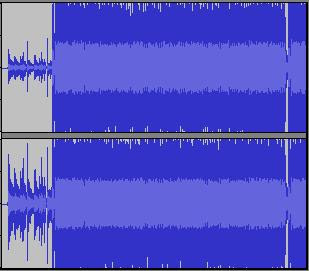Robert
Tapehead
I'd argue headphones are about the worst thing to listen to harsh squashed zero dynamic range music on, there's no escaping the sonic ugliness when it's right there in the middle of your head.
You need context though.
Sitting at home with a good pair of Sens and I'd agree completely.
Over buds or little supra-aural phones while riding the bus, train or just walking along the street and its a different story.
The hardware limitations and more importantly the high ambient noise make compression essential.
A bit of mild compression might conceivably help in those situations, but nothing like the smashed, clipped, brick-wall limiting being employed today. Those recordings don't sound "good" under any condition. I have to wonder if you've ever even been exposed to a brick-walled recording?

I'd argue those are far from the norm. If I pick ten albums at random from my library, all produced over the past decade I'll be lucky to find one that looks anything like that. Sure, there are some dreadful examples around but they aren't the norm IME.
This trend has nothing to do with iPods, they didn't exist in the mid-1990s when the Loudness Wars gained prominence.
The iPod per se is a side issue and merely one example.
Substitute cassette Walkman, personal CD player or even home micro system. You can even include the car audio system.
The issue remains the same - a combination of hardware not suited to wide dynamic range, and listening conditions where high ambient noise make compression desirable.

